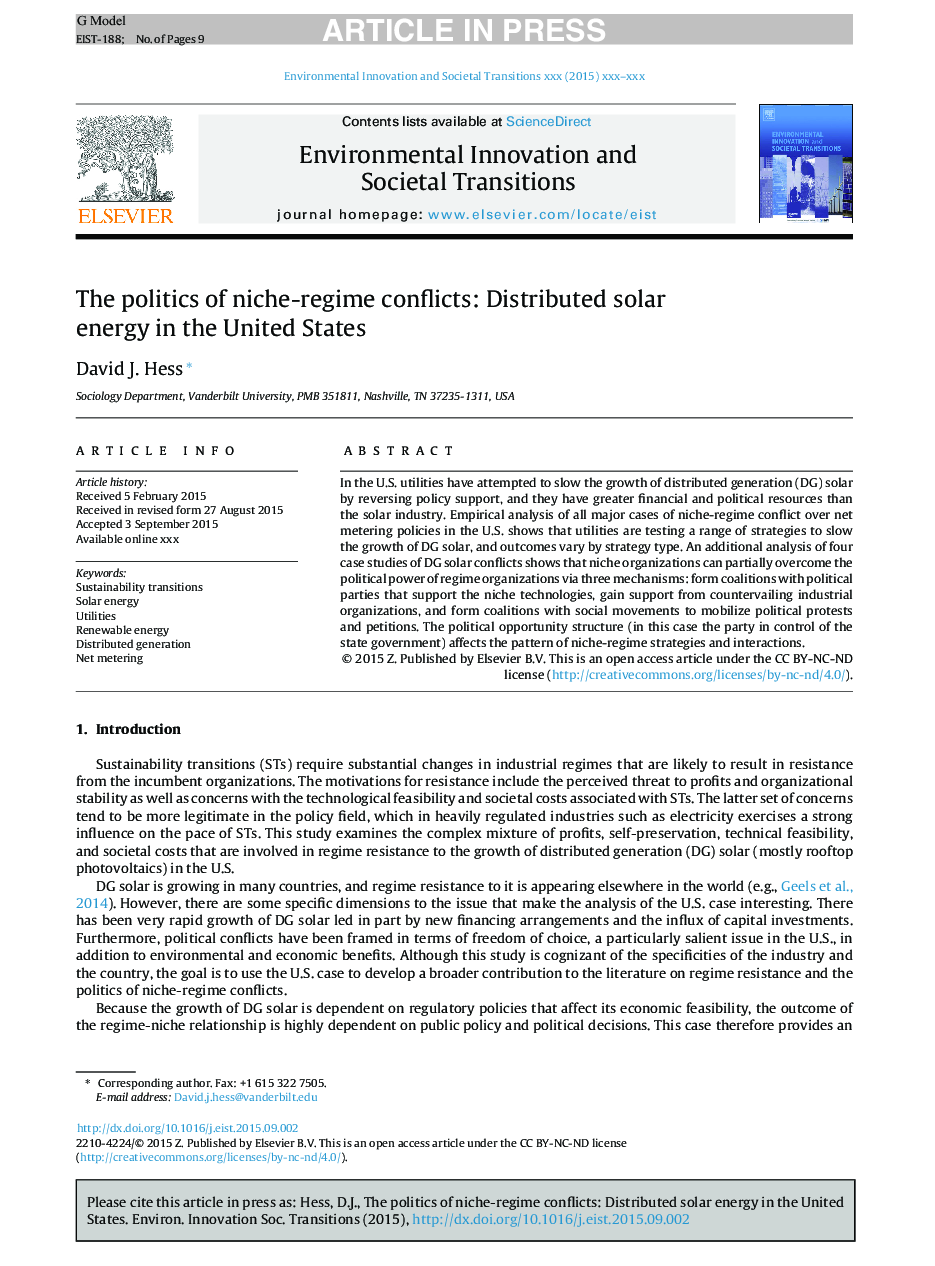| Article ID | Journal | Published Year | Pages | File Type |
|---|---|---|---|---|
| 6559206 | Environmental Innovation and Societal Transitions | 2016 | 9 Pages |
Abstract
In the U.S. utilities have attempted to slow the growth of distributed generation (DG) solar by reversing policy support, and they have greater financial and political resources than the solar industry. Empirical analysis of all major cases of niche-regime conflict over net metering policies in the U.S. shows that utilities are testing a range of strategies to slow the growth of DG solar, and outcomes vary by strategy type. An additional analysis of four case studies of DG solar conflicts shows that niche organizations can partially overcome the political power of regime organizations via three mechanisms: form coalitions with political parties that support the niche technologies, gain support from countervailing industrial organizations, and form coalitions with social movements to mobilize political protests and petitions. The political opportunity structure (in this case the party in control of the state government) affects the pattern of niche-regime strategies and interactions.
Keywords
Related Topics
Life Sciences
Environmental Science
Management, Monitoring, Policy and Law
Authors
David J. Hess,
